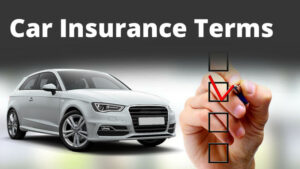 Courtesy of iii.org
Courtesy of iii.org
Whether you’re running a part-time, seasonal or full-time business from your home, you’ll want to carefully consider your risks and insurance needs. Starting a business—even at home—can be a challenging venture, and having the right insurance can provide a financial safety net and peace of mind.
Your insurance choices should, in part, be based on the type of business you operate. For instance, if you’re a sole practitioner home-based accountant, you’ll have very different insurance needs than your neighbor who runs a childcare business. When considering insurance for your business, here are some questions to ask yourself:
- What type of business do I run? What are the potential risks faced by your type of business?
- What is the value of my business property? Do you have expensive equipment, such as cameras or commercial printers? Do you stock valuable business inventory, such as gemstones?
- Does my business have employees?
- Do customers or contractors visit my business at my home?
- Do I use my car or other vehicles in the course of my business operations?
- Does my business store customers’ financial and personal information on a computer or through a cloud computing service?
The answers to these questions will guide which types of insurance to purchase—and how much coverage you’ll need. For your home-based business, the main types of insurance to consider include the following:
Property and liability insurance
Depending on the nature of your home-based business, you’ll need insurance to protect the value of your business property from loss due to theft, fire or other insured perils. You’ll also need liability protection to cover costs if someone is injured as a result of visiting your business or using your product or service. Your homeowners insurance may provide some protection for your business, but it may not be sufficient. Options for property and liability insurance for home-based businesses include:
- Adding an “endorsement” to your homeowners policy
- Stand-alone home-based business insurance policies
- A Business Owners Policy—or BOP—which combines several types of coverage
Business vehicle insurance
Your personal auto insurance may provide coverage for limited business use of your car. But if your business owns vehicles or your personal vehicle is primarily used for business purposes, you’ll need business vehicle insurance.
Workers compensation insurance
If you have employees, you’ll want to strongly consider purchasing workers compensation insurance to cover costs if an employee is hurt on the job. Workers compensation insurance provides wage replacement and medical benefits to employees injured in the course of employment, in exchange for relinquishing the right to sue the employer. In some states, workers compensation insurance is mandatory, so be sure to check your state’s workers compensation website for local requirements.
Other types of insurance may be suitable for your home-based business as well. Your insurance professional can help you evaluate your needs and select insurance to meet your budget.



